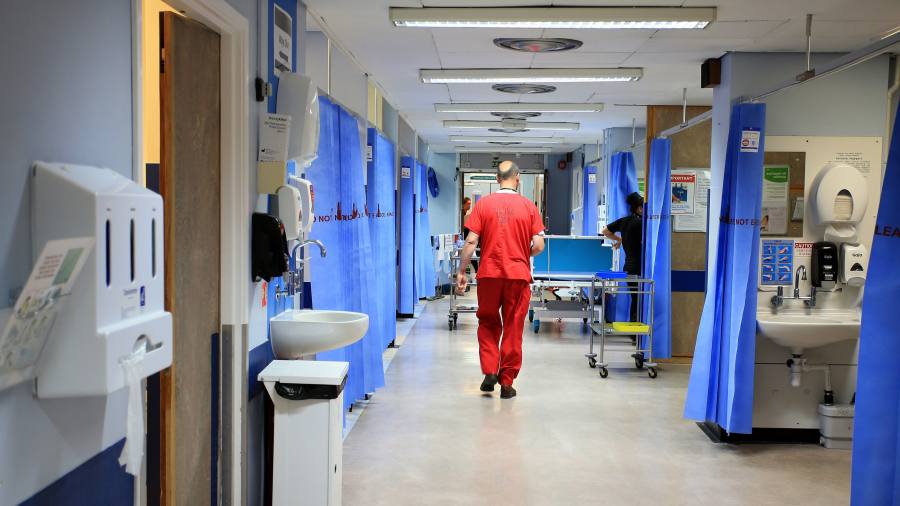Hundreds of thousands of higher earners could see their tax bills significantly reduced under changes to pension saving limits reportedly being considered by the government.
Under the current rules, people with incomes of more than £110,000 are at risk of having their annual tax-free pension savings allowance reduced from £40,000 to as little as £10,000.
The Times newspaper reported this week that the Treasury is preparing to raise the point at which allowance tapering kicks in to £150,000.
This would be a significant tax boost to higher-earning private and public sector workers who benefit from tax relief on what they pay into a pension.
Speculation about the move comes as the government considers ways to ease pressure on the National Health Service, where thousands of doctors are turning down overtime for fear of triggering pension tax charges.
Some medics have been shocked to learn that they face tax bills as high as £80,000 for inadvertently breaching their annual pension savings allowance.
“Raising the point at which the pension tax taper kicks in by £40,000 would help reduce or eliminate shock pension tax bills for a large number of high earners, including senior consultants in the NHS,” said Tom Selby, a senior analyst with AJ Bell, an investment platform provider.
“We don’t yet know whether this is viewed as the final solution to the NHS pensions crisis by the Treasury, or the beginning of a wider programme of pension tax reforms.”
Experts said any changes should be applied across the private sector, where many executives face higher tax bills after opting out of the company scheme and taking cash in lieu of pension.
An increase in the annual allowance for those who face the taper would reduce tax bills, potentially by tens of thousands of pounds.
“It would be a very unpopular move if senior NHS staff got a tax windfall through the NHS meeting their tax burden for them or the government waiving it, if similar relief wasn’t also made available to other sectors,” said Emma King, partner at law firm Eversheds Sutherland.
The tapered annual allowance was introduced in 2016 to curb tax relief for high earners. This group benefits most from the £35bn a year in annual tax incentives available to retirement savers.
However, highly complex rules around how the taper is calculated have led NHS doctors, as well as bankers and boardroom executives, being stung by big tax bills for exceeding their taper threshold.
The problem has been more acute for NHS professionals than workers in the private sector, as they have had less flexibility to change their pension contributions and reward package.
The taper sees the annual allowance whittle down from £40,000 to a floor of £10,000 for those with threshold incomes of £110,000 and with “adjusted” annual incomes of £150,000 to £210,000.
Crucially, the “adjusted” income figure includes employer pension contributions. These can be higher for many NHS workers, compared with the private sector, as they are saving into a “defined benefit” scheme.
The government has pledged to unveil the results of a review into the NHS pension problem at the Budget on March 11. In response to speculation the taper would be adjusted, the Treasury said: “We don’t comment on speculation about tax changes.”
However, it is under pressure from doctors’ unions, NHS leaders and even former pensions ministers, to consider much broader reform than tweaks to the taper.
“In its election manifesto, the government pledged to ‘address the taper problem’, but this proposal would do no such thing,” said Dr Vishal Sharma, chair of the British Medical Association’s pensions committee.
“As the BMA has said from the outset, the annual allowance is completely unsuitable for defined benefit schemes. Simply raising the threshold income would not remove any of the complexity of the taper, nor the threat of doctors facing a ‘tax cliff’ when their income increases through promotion or taking on additional work.”
Baroness Altmann, a former pensions minister, said: “The taper rules should be abolished. The pension tax problems have continued to worsen over the past few years and it is time for radical action that addresses the underlying cause of the issue, rather than belatedly trying to tinker with ‘flexibility of contributions’ or taper cliff-edge thresholds.”
Government officials were reportedly still in listening mode on ways to fix the NHS tax problem. But experts suggested any measure, such as raising the taper trigger limit, would be unlikely to apply to the current tax year.
“Given that they have already introduced a measure to deal with any tax liabilities resulting from the NHS Pension Scheme during this tax year when the individual retires, I suspect that this change would be implemented from April 6 2020, so [there would be] no impact for pension savers in this tax year,” said Gary Smith, chartered financial planner at wealth manager Tilney.


